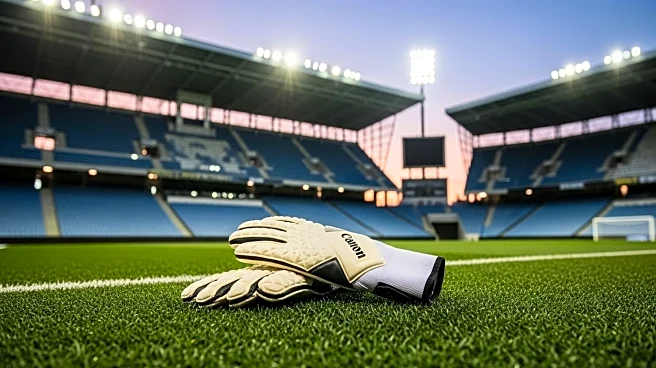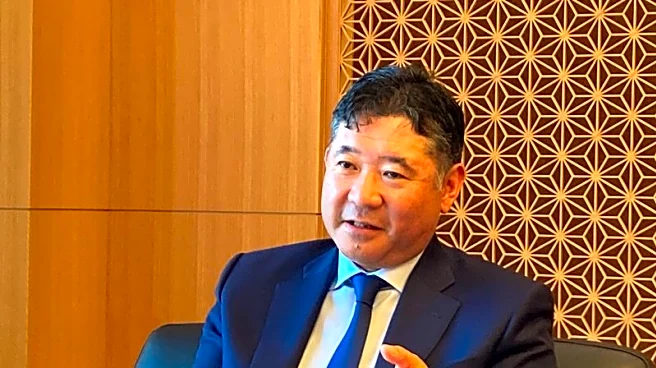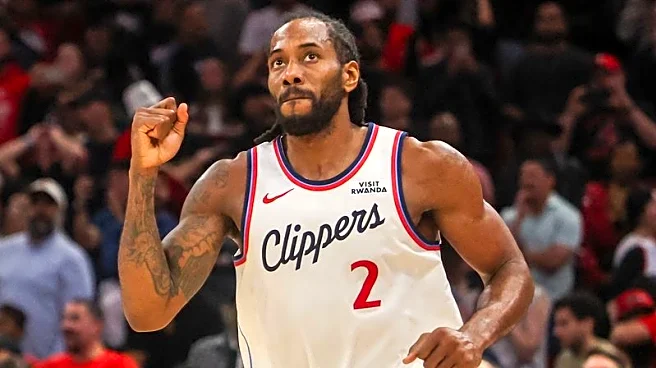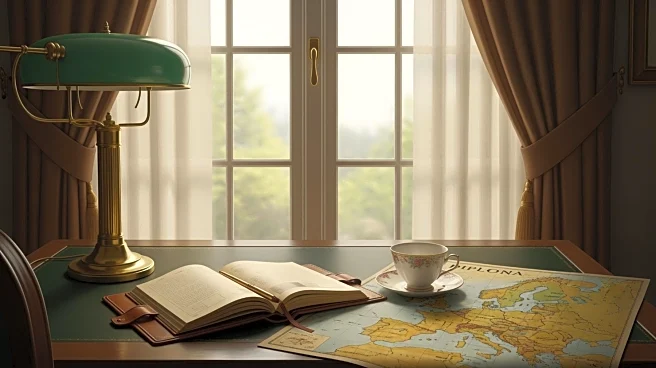What's Happening?
Matvey Safonov, the goalkeeper for Paris Saint-Germain (PSG) and the Russian national team, is reportedly considering leaving the French club before the end of the summer transfer window. This development follows the arrival of Ukrainian defender Illia Zabarnyi at PSG, which initially raised concerns about Safonov's future with the team. However, recent reports indicate that Safonov and Zabarnyi have established a good rapport within the club's locker room. PSG has also signed Lucas Chevalier, who is being groomed as the main goalkeeper after Gianluigi Donnarumma announced his departure. Safonov joined PSG in July 2024, with a contract extending to summer 2029, and has played 17 matches, achieving seven clean sheets.
Why It's Important?
Safonov's potential departure from PSG could have significant implications for the club's goalkeeping lineup and overall team dynamics. As PSG navigates the transition following Donnarumma's exit, the club's management must ensure stability in the goalkeeper position, which is crucial for maintaining competitive performance in domestic and international tournaments. Safonov's exit could also impact the Russian national team, where he plays a key role. The situation highlights the complexities of team management and player relationships in high-stakes football environments, affecting both club strategies and player career trajectories.
What's Next?
If Safonov decides to leave PSG, the club will need to finalize its goalkeeping strategy quickly, potentially relying on Lucas Chevalier as the primary goalkeeper. The transfer window's closure will prompt PSG to make decisive moves to secure their roster. Meanwhile, Safonov's future club destination remains uncertain, with potential interest from other teams likely to emerge. The outcome of these developments will be closely watched by football analysts and fans, as it could influence PSG's performance in upcoming competitions.
Beyond the Headlines
The situation underscores the broader challenges faced by football clubs in managing player contracts and team dynamics amidst frequent transfers. It also reflects the personal and professional decisions players must make in response to changing team compositions and career opportunities. The evolving landscape of international football, marked by strategic acquisitions and departures, continues to shape the sport's competitive environment.











